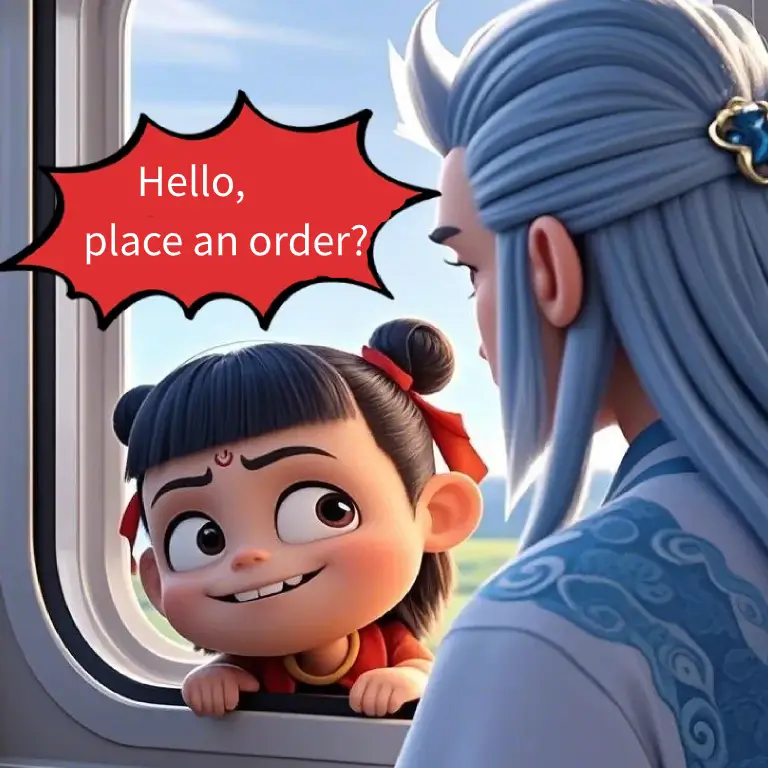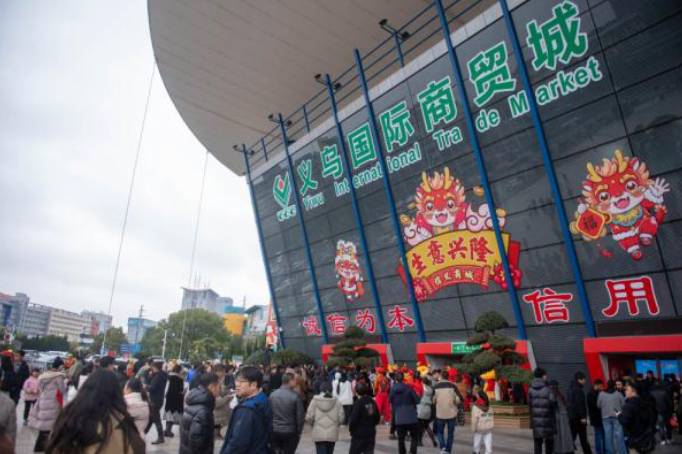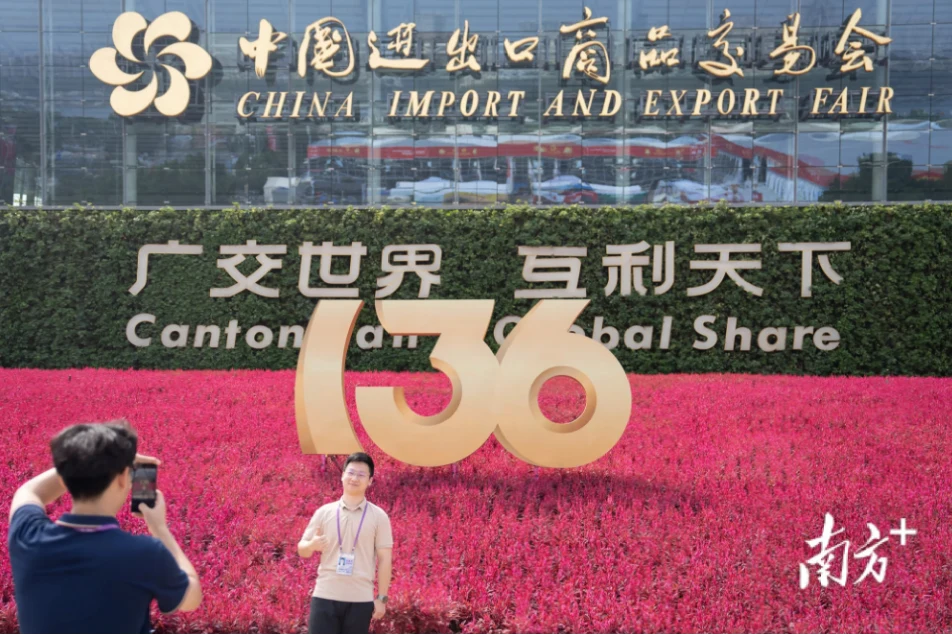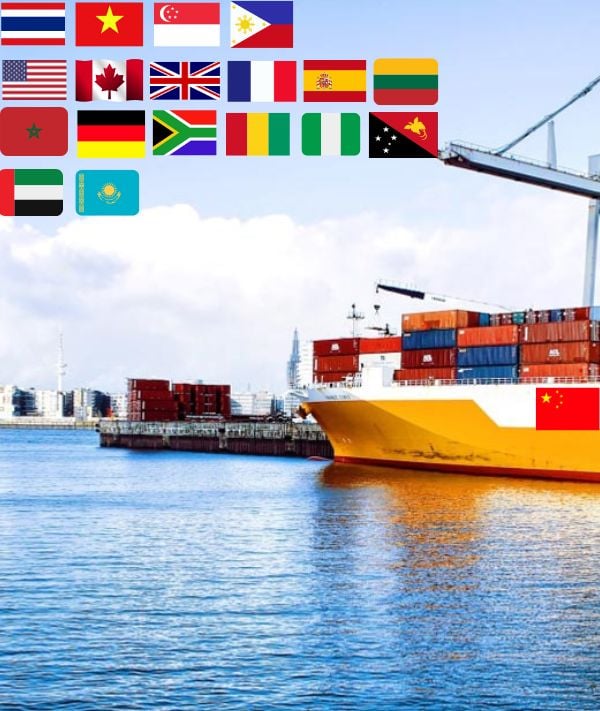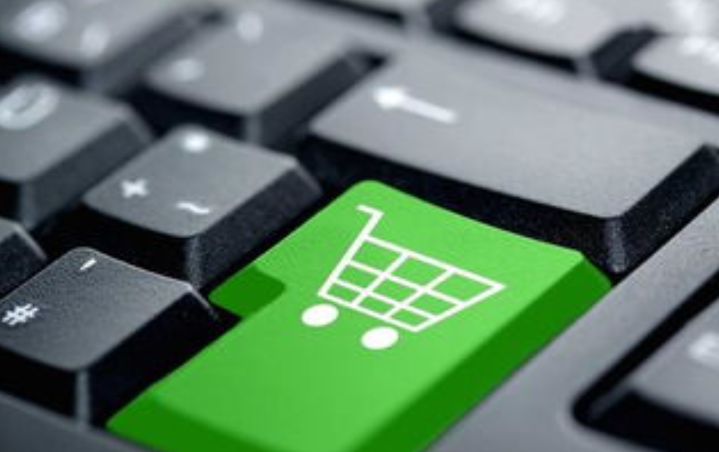
Welcome to the ultimate guide to China wholesale marketing, where we will unlock profitable opportunities for your business. With its booming economy and immense manufacturing capabilities, China has become a global hub for wholesale trade. Whether you are a small business owner or a large corporation, tapping into the Chinese wholesale market can be a game-changer for your bottom line.
In this guide, we will delve into the ins and outs of China wholesale marketing, offering valuable insights and strategies to navigate this competitive landscape successfully. From understanding the benefits of sourcing products from China to finding reliable suppliers and negotiating deals, we will cover it all. We’ll also explore the challenges and risks that come with wholesale marketing in China, providing you with practical tips and advice to ensure a smooth and profitable experience. Additionally, we’ll discuss topics like quality control, shipping logistics, and building long-term relationships with suppliers.
China wholesale marketing encompasses both online and offline channels. Online platforms such as 1688, Alibaba, Baidu Aibuy, Made-in-China, as well as DeWu China, DHgate, and JoomPro, offer a wide range of products, making it easier for businesses to find and purchase wholesale goods with just a few clicks. These platforms provide detailed information on suppliers, including their reputation, product listings, and pricing, which is crucial for making informed decisions.
1688 is a leading B2B e-commerce platform in China, operated by the Alibaba Group, primarily serving small and medium-sized enterprises with domestic and international trade services. 1688 is not only a wholesale platform but also supports the “one-piece dropshipping” model, allowing consumers to purchase products through the platform. It also facilitates the distribution of goods to domestic e-commerce platforms like Douyin, Pinduoduo, and Taobao, as well as international platforms like Amazon and Lazada, achieving multi-channel sales. Additionally, 1688 has strong cross-border capabilities, helping factories and enterprises sell products globally.
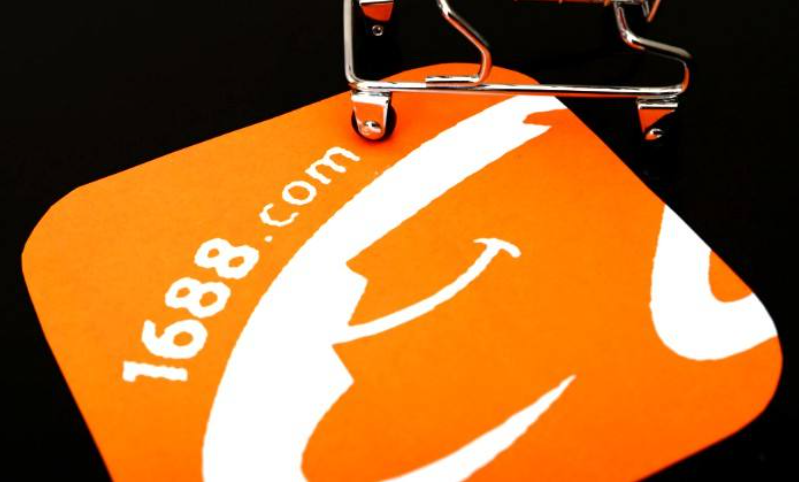
1688
Alibaba.com succeeds due to its diversified business model, including B2B, B2C, and C2C transactions, supporting third-party payment and credit evaluation services, and offering partner guidance services. These features make Alibaba a major player in the global e-commerce arena, competing fiercely with rivals such as I steel net and Global Sources.
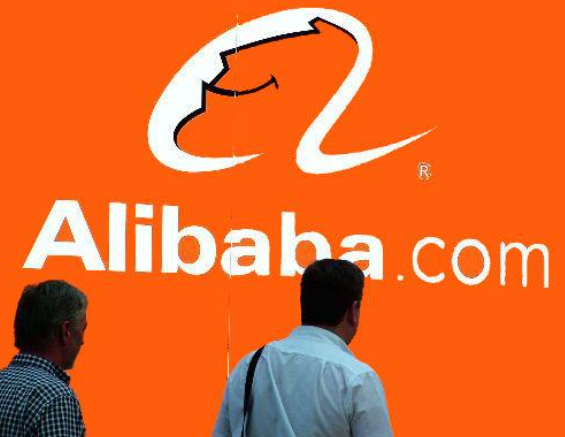
Alibaba
Baidu Aibuy is an enterprise one-stop procurement platform under Baidu, designed to help users access comprehensive product information across the internet, reach high-quality merchants, and conduct secure and convenient transactions. Merchants can seamlessly integrate with Baidu search through Aibuy, meeting users’ needs for precise procurement information, gaining accurate buyers, and obtaining more business opportunities and orders. Aibuy uses AI and other methods to help SMEs better address procurement and sourcing issues.
Made-in-China is a widely recognized label globally, representing products manufactured in China. This label not only indicates the origin of the products but also reflects China’s vast industrial manufacturing system and rapidly developing economy. From clothing to electronics, almost all types of products bear the “Made in China” label, highlighting China’s status as the “world’s factory.”
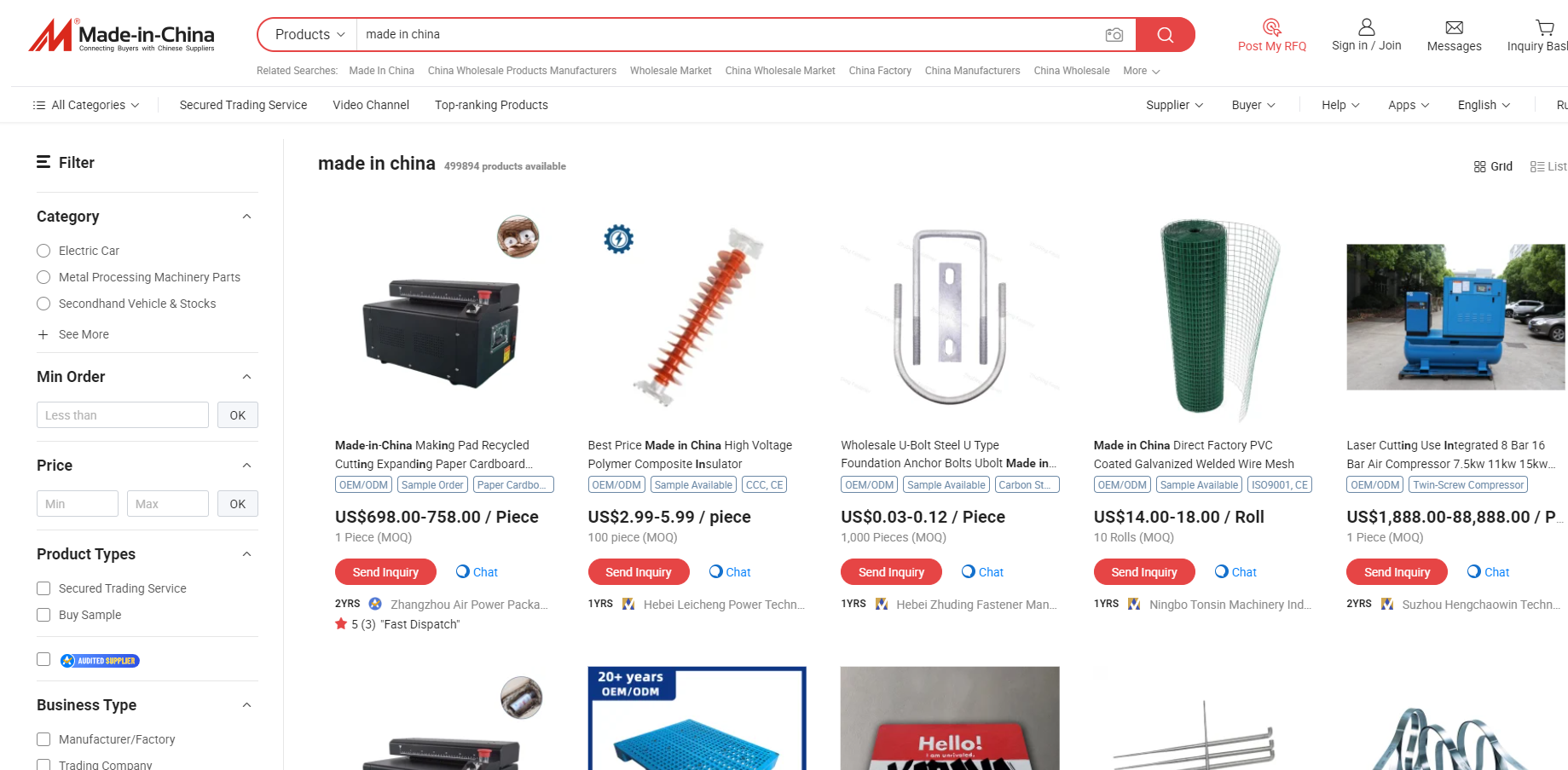
made-in-china
JoomPro, a global B2B trade platform under the Joom Group, provides sellers with a simple and convenient one-stop wholesale sales opportunity. Whether you’re in Russia, Brazil, the United States, or any other market, you can quickly find suitable products and customers through JoomPro.
DHgate is a round-the-clock international online wholesale trading platform, aggregating products from numerous small and medium Chinese suppliers to effectively serve many small and medium foreign buyers. It fully considers the specifics of international trade, combining emerging e-commerce with traditional international trade, providing professional and efficient information flow, capital flow, and logistics services for international trade operations.
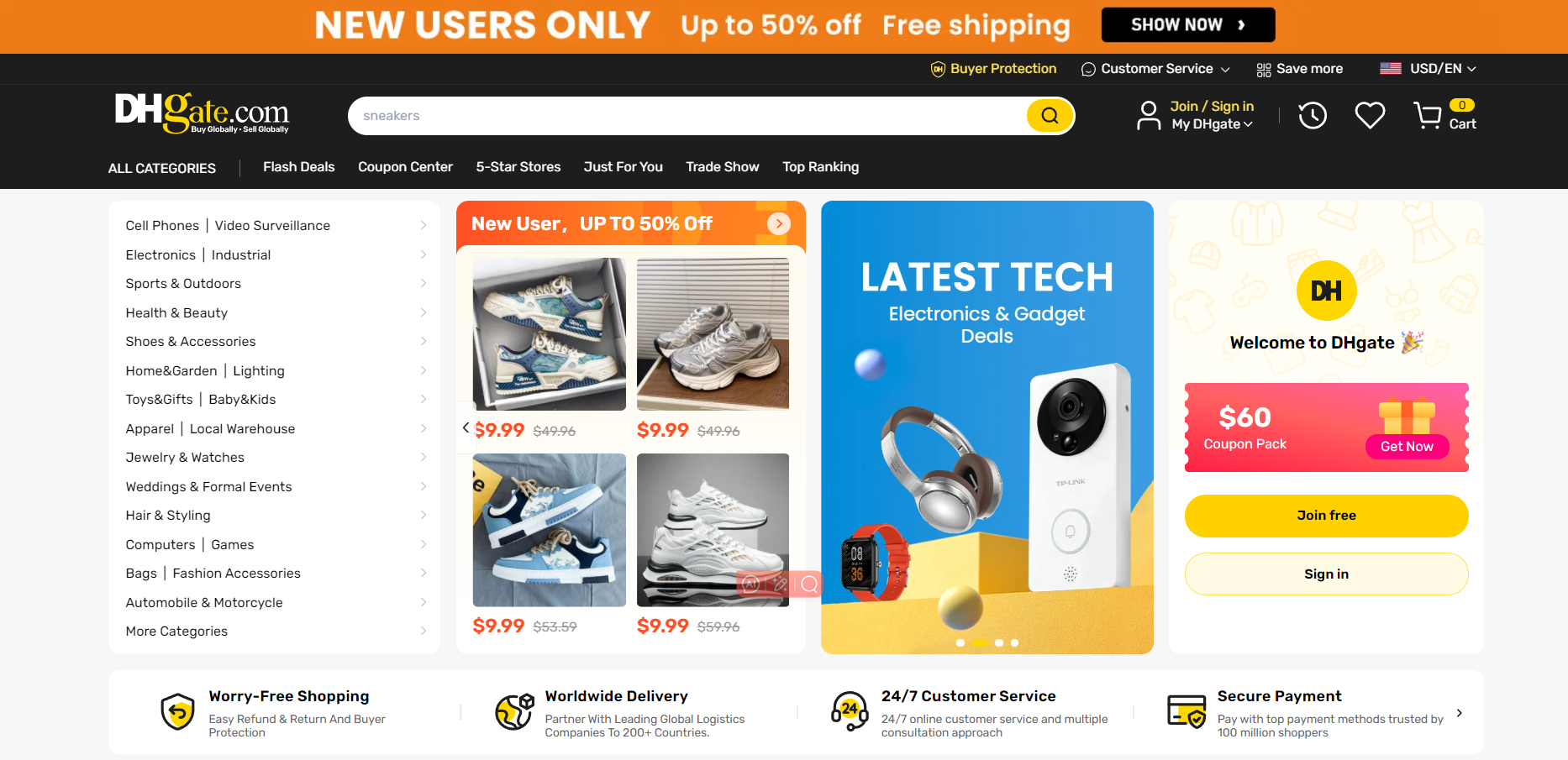
DHgate
DeWu China is known for its extensive product catalog and competitive pricing, making it a popular choice for bulk purchases. The DeWu App is not only a trendy e-commerce platform but also a lifestyle community covering second-hand sneaker trading, sneaker authentication, community sharing, and new product recommendations. Its user base primarily consists of younger generations, particularly those born in the 1990s and 2000s, who have a strong demand for trendy culture and fashion consumption. The DeWu App satisfies contemporary young people’s desire for a better life by promoting trendy culture and providing high-quality fashion products.

DeWu
On the other hand, offline wholesale markets in China, such as the Yiwu International Trade City and various clothing wholesale malls in cities like Guangzhou and Shenzhen, offer a more hands-on approach. Visiting these markets allows businesses to inspect products firsthand, negotiate directly with suppliers, and even discover unique items that may not be available online.
Get ready to discover a world of opportunities and take your business to new heights with China wholesale marketing. Let’s dive in and uncover the secrets to success in this dynamic and lucrative industry.
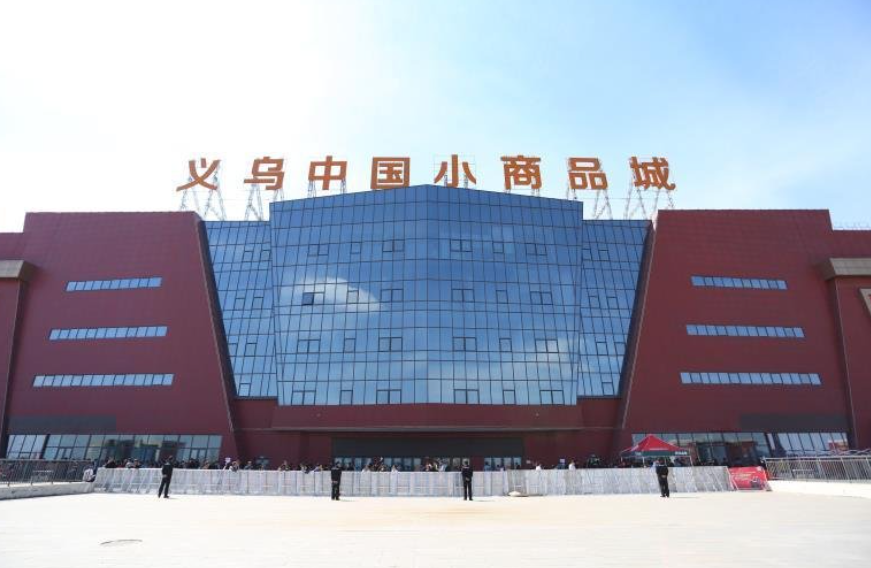
China Yiwu small commodity city
Understanding the Benefits of China Wholesale Marketing
China wholesale marketing offers a wealth of opportunities for businesses looking to expand their product lines and increase profitability. The primary advantage of engaging in China wholesale marketing is the cost-effectiveness. Chinese manufacturers are known for producing a wide range of goods at competitive prices, allowing businesses to maximize their profit margins. Additionally, the vast array of products available in the Chinese market means that businesses can diversify their offerings and cater to different customer needs.
Another significant benefit of China wholesale marketing is access to innovative products. Chinese manufacturers are often at the forefront of technological advancements and product innovation. By sourcing products from China, businesses can stay ahead of trends and offer their customers the latest and most sought-after items. This can be a crucial factor in gaining a competitive edge in your industry.
Moreover, China wholesale marketing provides opportunities for businesses to build strong supplier relationships. Establishing long-term partnerships with Chinese suppliers can lead to better pricing, exclusive product lines, and reliable supply chains. These relationships are vital for ensuring the consistency and quality of the products you offer, ultimately enhancing customer satisfaction and loyalty.
How to Find Reliable Wholesale Suppliers in China
One of the key aspects of successful China wholesale marketing is finding reliable suppliers. The process of identifying trustworthy suppliers in China can be challenging, given the sheer number of options available. However, there are several strategies you can employ to ensure you are working with reputable suppliers.
Firstly, conducting thorough research is essential. Utilize online platforms such as Alibaba, Global Sources, and Made-in-China.com to search for suppliers. These platforms provide valuable information about suppliers, including customer reviews, product listings, and business verification details. It’s important to look for suppliers with a strong track record, positive reviews, and a history of delivering high-quality products.
Secondly, attending trade shows and exhibitions in China can be an effective way to find reliable suppliers. Events like the Canton Fair, China International Import Expo (CIIE), and Yiwu Fair offer opportunities to meet suppliers in person, inspect product samples, and discuss potential business partnerships. Face-to-face interactions can help establish trust and facilitate smoother negotiations.
Lastly, consider working with sourcing agents or third-party companies specializing in China wholesale marketing. These professionals have local knowledge and can help you navigate the complexities of the Chinese market, identify trustworthy suppliers, and manage logistics and quality control.
Tips for Negotiating with Chinese Suppliers
Negotiating with Chinese suppliers is a critical component of China wholesale marketing. To secure the best deals and establish mutually beneficial relationships, it’s important to approach negotiations with a clear strategy.
One key tip is to emphasize the potential for long-term collaboration. Chinese suppliers value ongoing business relationships, and demonstrating your commitment to a lasting partnership can lead to more favorable terms. Additionally, it’s important to be clear and precise about your requirements. Miscommunication can lead to misunderstandings, so ensure that all aspects of the deal, including product specifications, pricing, payment terms, and delivery schedules, are clearly outlined and agreed upon.
Another effective negotiation tactic in China wholesale marketing is to leverage competition. Let suppliers know that you are considering multiple options, which can incentivize them to offer better pricing or additional perks to win your business. However, it’s crucial to balance this approach with respect and professionalism, as building trust is key to a successful partnership.
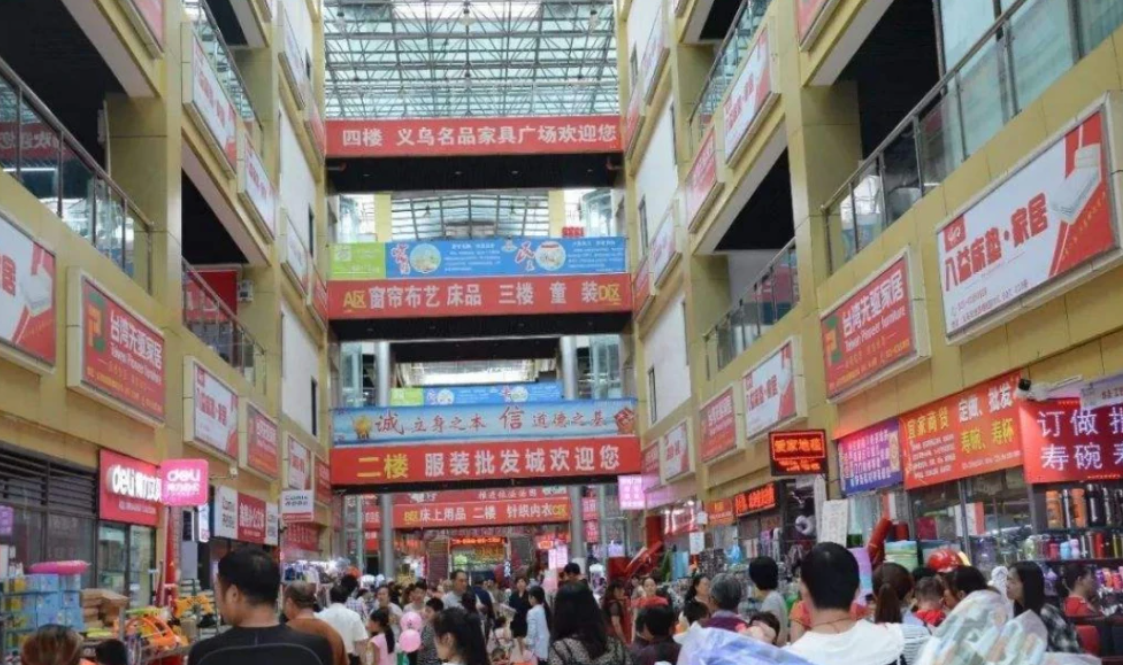
china wholesale marketing
Quality Control and Product Testing in China Wholesale
Quality control is a vital aspect of China wholesale marketing. Ensuring that the products you source from China meet your standards is essential for maintaining customer satisfaction and brand reputation. There are several steps you can take to implement effective quality control measures.
Firstly, consider hiring a third-party inspection company to conduct product testing and factory audits. These companies can assess the quality of the products, verify that they meet your specifications, and ensure that the manufacturing process adheres to industry standards. Regular inspections throughout the production process can help identify and address potential issues before the products are shipped.
Secondly, it’s important to establish clear quality standards and communicate them to your suppliers. Providing detailed specifications, including materials, dimensions, and performance criteria, helps minimize the risk of receiving subpar products. Additionally, requesting product samples before placing a large order can give you a better understanding of the supplier’s capabilities and the quality of their goods.
Shipping and Logistics Considerations for Importing from China
Navigating shipping and logistics is a crucial part of China wholesale marketing. Importing goods from China requires careful planning and coordination to ensure timely delivery and minimize costs.
One of the first steps is to choose the right shipping method. Depending on the size and nature of your order, you can opt for sea freight, air freight, or express shipping. Sea freight is generally more cost-effective for large shipments, while air freight offers faster delivery for time-sensitive goods. Express shipping, though more expensive, provides a balance between speed and convenience for smaller orders.
Additionally, working with a reliable freight forwarder is essential. Freight forwarders handle the complexities of international shipping, including customs clearance, documentation, and transportation arrangements. Partnering with a reputable forwarder can streamline the process and reduce the risk of delays or complications.
Navigating Cultural Differences in China Wholesale Business
Understanding and respecting cultural differences is crucial when engaging in China wholesale marketing. Chinese business culture places a strong emphasis on relationships, trust, and respect, known as “guanxi.” Building good guanxi with your suppliers can lead to more successful negotiations and smoother business transactions.
When communicating with Chinese suppliers, it’s important to be patient, polite, and formal. Take the time to build rapport and establish trust before diving into business discussions. Additionally, be mindful of Chinese holidays and festivals, which can impact production schedules and lead times.

China Yiwu hat wholesale marketing
Navigating Cultural Differences in China Wholesale Business
Understanding and respecting cultural differences is crucial when engaging in China wholesale marketing. Chinese business culture places a strong emphasis on relationships, trust, and respect, known as “guanxi.” Building good guanxi with your suppliers can lead to more successful negotiations and smoother business transactions.
When communicating with Chinese suppliers, it’s important to be patient, polite, and formal. Take the time to build rapport and establish trust before diving into business discussions. Additionally, be mindful of Chinese holidays and festivals, which can impact production schedules and lead times.
Legal and Regulatory Considerations for Importing from China
When engaging in China wholesale marketing, it’s important to be aware of the legal and regulatory requirements for importing goods. This includes understanding import duties, tariffs, and customs regulations in your home country. Additionally, ensure that the products you are importing comply with local safety and quality standards.
Working with legal experts or consultants who specialize in international trade can help you navigate these complexities and avoid potential pitfalls.
Strategies for Marketing and Selling China Wholesale Products
Once you have successfully sourced products through China wholesale marketing, the next step is to effectively market and sell them. Develop a comprehensive marketing strategy that includes online and offline channels, social media, and e-commerce platforms. Highlight the unique features and benefits of your products to attract customers and differentiate your brand from competitors.

China Yiwu clothing wholesale marketing
Unlocking Profitable Opportunities through China Wholesale Marketing
China wholesale marketing presents a wealth of opportunities for businesses looking to expand their product offerings and increase profitability. By understanding the benefits, finding reliable suppliers, and implementing effective strategies for quality control, shipping, and negotiation, you can unlock the full potential of the Chinese wholesale market. With careful planning and execution, China wholesale marketing can become a key driver of growth for your business.
Share This Story, Choose Your Platform!
We connect you with reliable factories, get the best quotes, deliver straight to your door.







